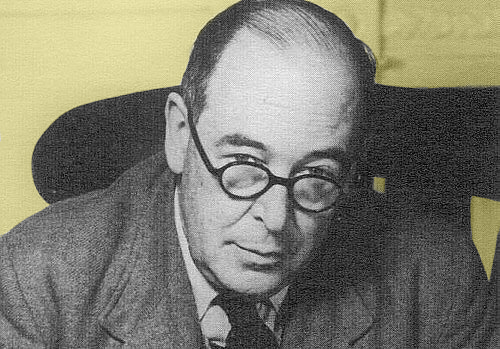
C.S. Lewis writes a quick note on his most pressing concern of the new year: contemporaneity. A defender of the medieval imagination, Lewis refuted the idea that any moral doctrine of civilization could be improved with time. He addresses Ruth Pitter, a poet of strict cadence and religious theme. Pitter converted to Christianity after listening to Lewis’s radio programs during WWII; they became intimate correspondents, even though it took seven years of letter-writing for them to reach a first-name basis. Lewis once remarked that, if he had been the kind of man to get married, Pitter would have been his woman of choice.
To Miss Ruth Pitter
Magdalen College [Oxford]
6 January 1951
What is the point of keeping in touch with the contemporary scene? Why should one read authors one doesn’t like because they happen to be alive at the same time as oneself? One might as well read everyone who had the same job or the same coloured hair, or the same income, or the same chest measurements, as far as I can see. I whistle, and plunge into the tunnel of term.
From Letters of C.S. Lewis. With a memoir by W.H. Lewis. New York: Houghton Mifflin Harcourt (1966), pp. 405.
FURTHER READING
An introduction to Pitter’s poetry with notes on the influence she exerted over Lewis
The discarded image: Lewis’s notes on time and permutating world views.
A rare moment in which Lewis abandons the past for the present.


